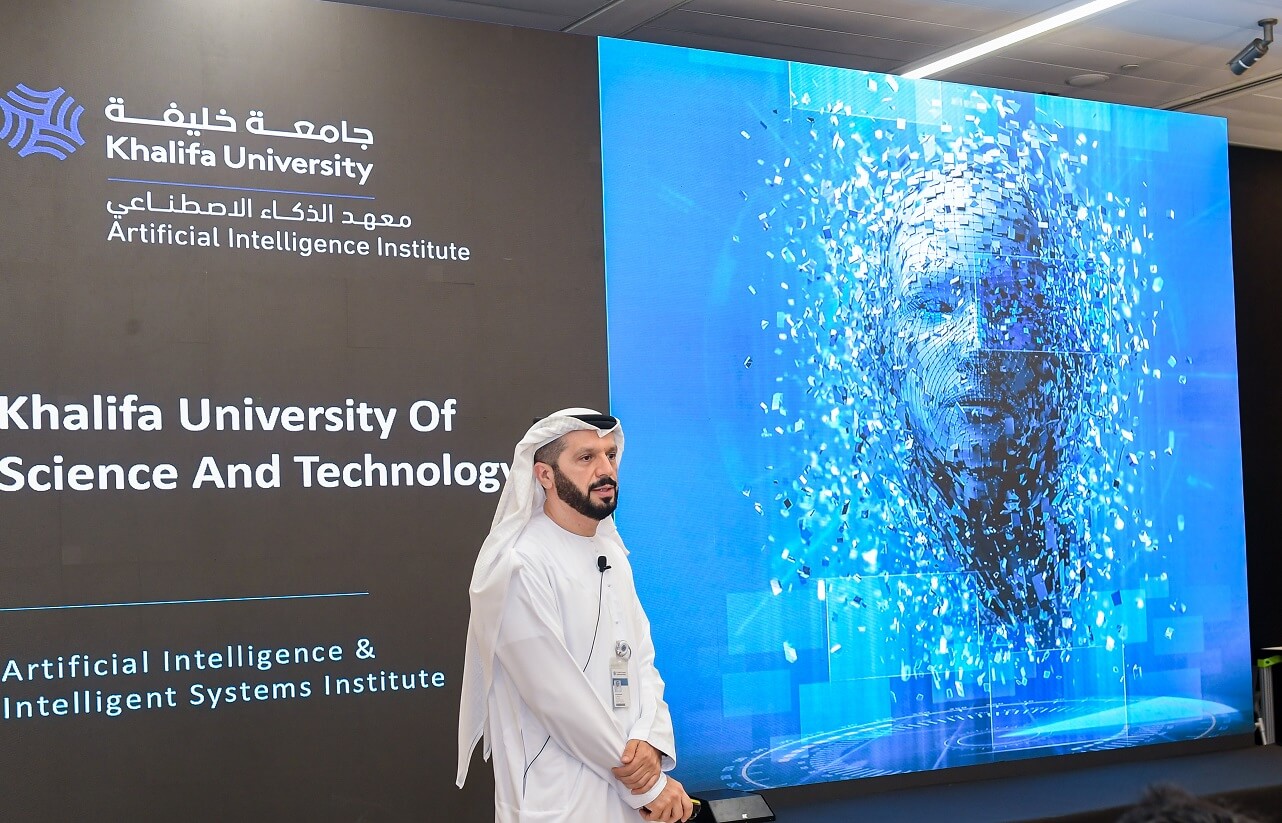
KU’s New Artificial Intelligence and Intelligent Systems Institute makes AI a Central Focus of its Academic and Research Activities
Self-driving cars, cancer diagnosis systems and workflow optimizations: the uses of artificial intelligence technology are exhaustive, ranging from the artistic to the mundane, from life-saving to recreational.
AI is by no means new; as early as 1950, Alan Turing published a paper titled Computer Machinery and Intelligence exploring the concept of AI and igniting the collective imagination. It’s only now that computers have advanced their technical capabilities to the point where they can handle the complexity of the machine learning algorithms that utilize massive amounts of available data to produce useful insights. A computer’s processing power is now over one trillion times more powerful than in Turing’s day, and they are increasingly being designed specifically for AI applications and therefore accelerating the pace of AI development.
Khalifa University’s Artificial Intelligence and Intelligent Systems Institute (AI Institute) is a multidisciplinary research unit focused primarily on robotics, artificial intelligence, data science, next-generation networks, semiconductor technologies, and cybersecurity. Its mission is to conduct applied and fundamental R&D of the key technologies required to bring the UAE significantly closer to reaching its goal of becoming a global hub for AI innovation.
KU now has three flagship research institutes that serve as interdisciplinary research units focused on long-term strategic priorities. The AI Institute joins the Masdar Institute, focusing on sustainable energy, water and the environment, and the Petroleum Institute, focusing primarily on upstream and downstream hydrocarbon exploration and production.
Through the AI Institute, Khalifa University is positioning artificial intelligence as a central focus of its integrated academic and research activities—with good reason.
According to PwC, AI could contribute as much as USD 96 billion to the UAE’s Gross Domestic Product (GDP) by 2030 and Accenture has stated that AI could add as much as USD 182 billion to the UAE’s Gross Value Add (GVA) by 2035. A report titled “Artificial Intelligence in the Middle East and Africa: United Arab Emirates – Outlook for 2019 and Beyond,” commissioned by Microsoft and conducted by EY, says the UAE has already seen the second highest regional investment in AI over the past decade: more than US$2.15 billion.
Research projects already undertaken by the research centers now housed under the AI Institute include sentiment analysis across social media, diagnosing cardiovascular disease, and surveillance by collaborating unmanned vehicles, just to name a few. Future projects will build on the institute’s capabilities in robotics, machine learning, natural language processing and computer vision to the fields of energy, water, health, aerospace, supply chains and logistics. The recently launched KU-Korean Advanced Institute of Science and Technology (KAIST) Joint Research Center focuses, for instance, focuses on AI and intelligent systems for smart transportation and smart healthcare. The smart healthcare projects in this center compliment those being conducted by KU’s Healthcare Engineering Innovation Center (HEIC), which is also part of the new institute, and works on topics like minimally invasive biorobotics.
Most importantly, much of the research will cover operational AI, which is the application of AI for real-world applications, particularly at prototype and demonstration scale. This is rather different from fundamental AI, which is focused much more on advancing AI algorithms and platforms. The research projects carried out under the AI Institute are use-inspired, meaning that solutions are sought to identified practical challenges. The results of these projects will not only be ground-breaking, innovative and exciting to the field at large, but also practical and applicable to the population of the UAE and the world.
Artificial intelligence is already tasked with decision-making across many critical infrastructures, with more to come. From energy grids to hospitals to financial services, AI is being applied with the goal of advancing major efficiencies and process improvements. However, integrating new technologies into existing complex systems is a delicate and difficult task and problems with data-inputs, inaccuracies, and faulty results can ultimately lead to poor outcomes and disappointment.
The establishment of the AI Institute comes at a pivotal time for the United Arab Emirates. One in five companies operating in the country consider AI their top digital priority, and 94 percent of companies have AI strategy at the heart of their senior management focus.
Since 2010, the UAE leadership has been launching national strategies and targets to guide the country’s development into a sustainable and competitive knowledge-based economy. Sophisticated strategies, like Abu Dhabi Vision 2030, UAE Vision 2021, and the National Innovation Strategy, are guiding the country in focusing on specific sectors and outcomes that will position the UAE as a knowledge and innovation leader.
The UAE Artificial Intelligence Strategy and the Fourth Industrial Revolution Strategy position the UAE to become a global leader in these emerging technology domains. By leveraging its robust expertise in ICT, data analytics and robotics research, and partnering with the region’s leading industry experts in the field, KU’s AI Institute is set to develop the innovative technologies needed to achieve the UAE’s AI transformation goals.
Jade Sterling
News and Features Writer
29 July 2019